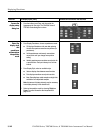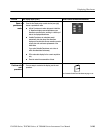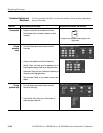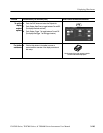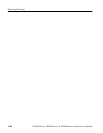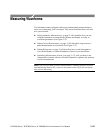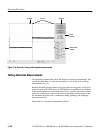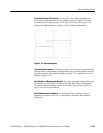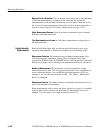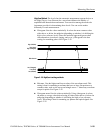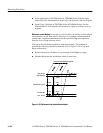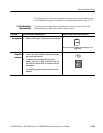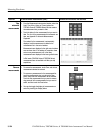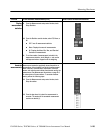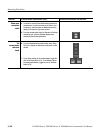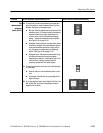
Measuring Waveforms
3- 150
CSA7000 Series, TDS7000 Series, & TDS6000 Series Instruments User Manual
Measure Part of a Waveform. You can feed the entire waveform to a measurement
or limit the measurement to a segment of the waveform. By default, the
instrument takes each automatic measurement over the entire waveform record,
but you can use measurement gates and zoom to localize each measurement to a
section of a waveform (see To Localize a Measurement on page 3--159).
Select Measurement Sources. Select from these measurement sources: channel,
Reference, and math waveforms.
Take Measurements on a Frame. In FastFrame, measurements are taken only on
the displayed frame.
Read the following topics; they provide the details that can help you set up
automatic measurements so that they best support your data-analysis tasks.
Measurement Selection. The instrument takes automatic measurements of the
following categories: Amplitude, Timing, More, Histogram, and Comm
(optional on TDS7000 Series & TDS6000 Series). Check Appendix B: Automatic
Measurements Supported for a listing of the measurements that you can choose.
Number of Measurements. The instrument can take and update up to eight
measurements at one time. You can apply measurements to any combination of
sources (described below). You can take all eight measurements on Ch1, for
example or you can take measurements on Ch1 -- Ch4, Math1 -- Math4, Ref1 --
Ref4, or a histogram.
Measurement Sources. All channel, reference, and math waveforms can serve as
sources for automatic measurements.
Some measurements, such as delay and phase, require two sources. For example,
delay would be used to measure an input from one measurement source (for
example, C1) with respect to an output in another source (C2).
Using Automatic
Measurements



